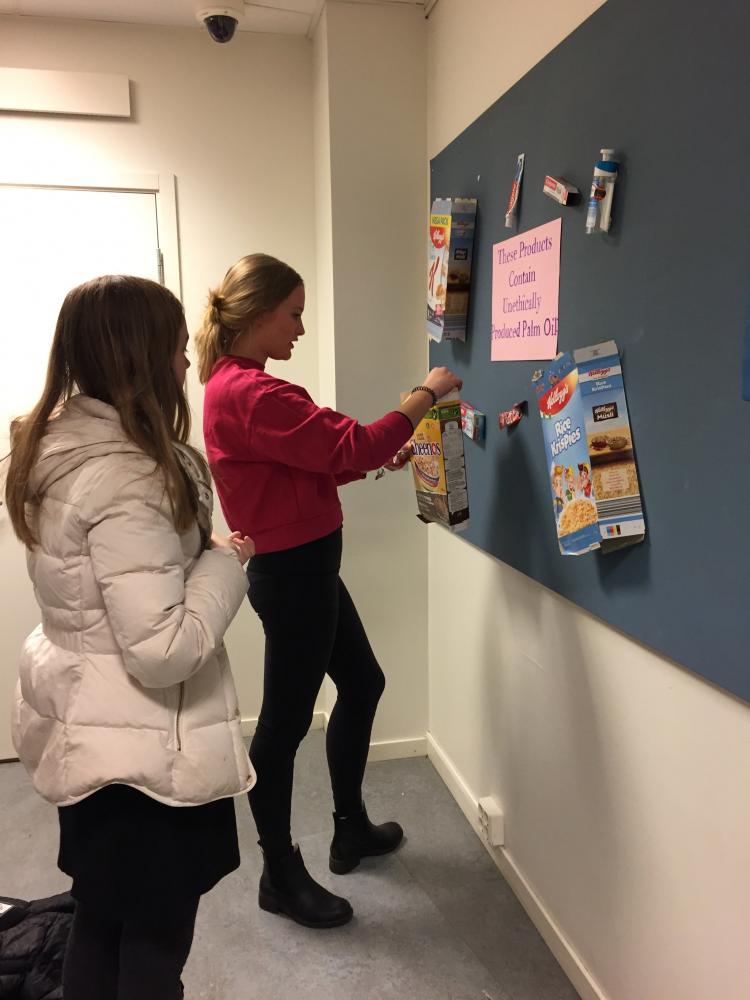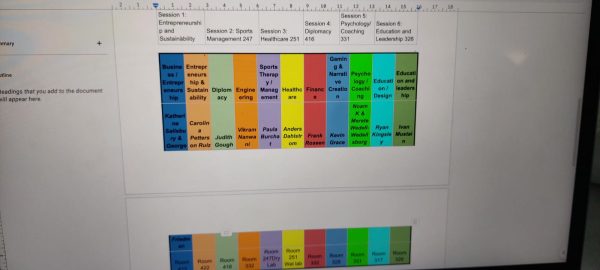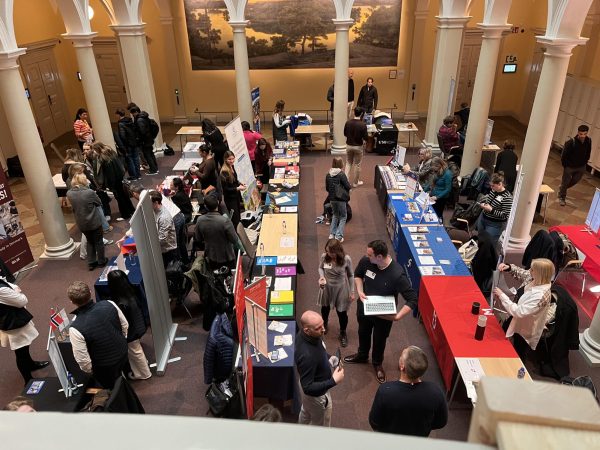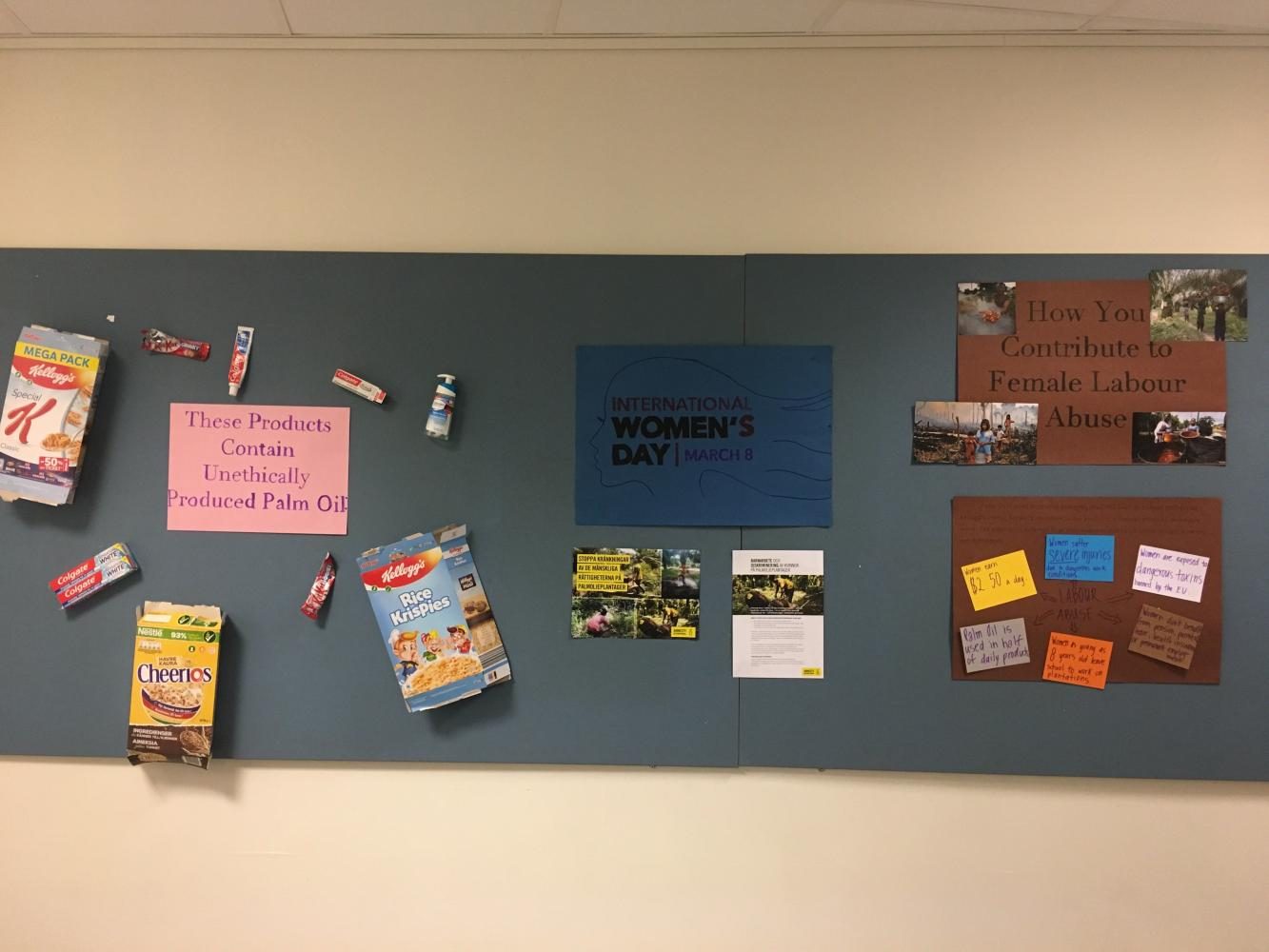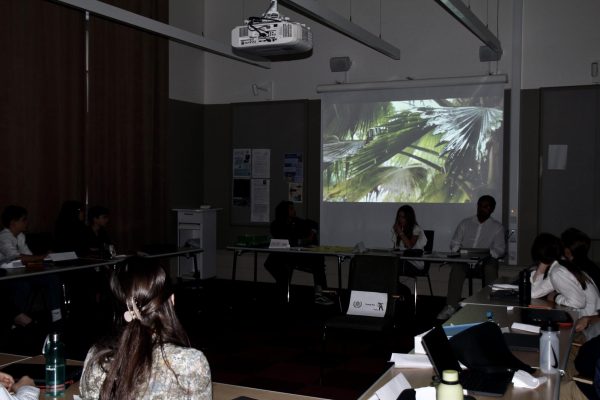Did You Know This About Palm Oil?
Earlier this year, SIS’s Amnesty International group launched a campaign to raise awareness for the mistreatment of palm oil plantation workers. This occurs mostly in Indonesia with labor abuse especially directed towards women.
Palm oil is likely an ingredient in half of your daily products. It is derived from palm fruits and is a sought-after product due to cheap manufacturing costs and versatile use. Chances are palm oil is an ingredient in many of your kitchen essentials (Kellogg’s Cereal, Cheerios, Ben and Jerry’s ice cream, cooking oils, etc.), as well as cosmetics (Dove soap, Vaseline, AXE deodorant, etc.).
Indonesia, the world’s largest palm oil producer, accounts for 45% of the world’s palm oil supply — this is equivalent to about 35 million tonnes per year (equivalent to the weight of 6.5 million elephants). This industry employs 3 million workers in Indonesia and although strong labour laws are in place, they are generally not enforced. Because of this, systematic abuse of workers has become a common pattern in Indonesian palm oil plantations.
The use of palm oil is unethical for a number of reasons — the recent Amnesty campaign focused on the human rights issues concerned with the production of this product. At Wilmar, a Singapore based company which controls more than 43% of all global palm oil trade, it is virtually impossible for a woman to become a permanent employee. By denying permanent employment, Wilmar is not obliged to grant basic social security benefits even when they have been working at the same plantation for years. Workers who are listed as “casual daily labourers” do not receive health insurance, pensions, compensation and sick pay. Without the status of a permanent worker, their employment status remains insecure and they are offered no security; meaning that they could be subject to termination of work at any given time as per the employer’s wishes, regardless of performance quality.
A casual labourer who works for a Wilmar subsidiary, who goes by V, described to Amnesty International the treatment she received from her employer after sustaining a work injury. She explained that while the Wilmar subsidiary paid for her treatment, they did not compensate her and she was severely underpaid (in addition to the already below-living wages that plantation workers in Indonesia generally receive).
In Amnesty’s report entitled, The Great Palm Oil Scandal she is quoted as saying, “I was riding in a jonder [small truck used to transport palm fruit and other materials], sitting on top of the fertiliser. The foreman asked me to go with the jonder because the area was far away. The jonder was trying to get over a small bridge and it capsized and I fell into a ditch and the bags of fertiliser fell on me. I drank the water in the ditch. I had pain all over my body. My legs hurt and I couldn’t walk. I got massages and injections. The company doctor came home to give me shots. I didn’t have to pay for it. I couldn’t work for three months but they paid me only for 15 days. I asked but didn’t get any compensation.”
This is just one of the many cases of labour abuse that occurs in palm oil plantations every day. Recently, the SIS Amnesty group has worked with Amnesty International to collect signatures in an effort to put an end towards the unethical treatment of not only women, but all plantation workers who are treated unfairly. In many cases, the victims of labour abuse are not able to come forwards themselves, so SIS Amnesty hopes to spread their message, lend them a voice, and raise awareness. If you are interested in SIS Amnesty’s work, keep your eyes peeled — the group will be starting on a new campaign very shortly.
